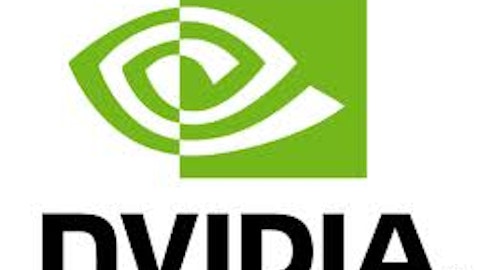If you are looking for the best ideas for your portfolio you may want to consider some of Wedgewood Partners top stock picks. Wedgewood Partners, an investment management firm, is bullish on Electronic Arts Inc. (NASDAQ:EA) stock. In its Q2 2019 investor letter – you can download a copy here – the firm discussed its investment thesis on Electronic Arts Inc. (NASDAQ:EA) stock. Electronic Arts Inc. (NASDAQ:EA) is a video game company.
On July 16, 2019, Wedgewood Partners had released its Q2 2019 investor letter. The investment firm said that it initiated a position in Electronic Arts Inc. (NASDAQ:EA) stock in Q2 2019. The stock has posted a return of 50.7% in the trailing one year period, outperforming the S&P 500 Index which returned 20.5% in the same period. This suggests that the investment firm was right in its decision. On a year-to-date basis, Electronic Arts Inc. (NASDAQ:EA) stock has risen by 31.3%.
Wedgewood Partners fund posted a return of 4.3% in the second quarter of 2019, in-line with the S&P 500 Index which also returned 4.3% in the same quarter. Let’s take a look at comments made by Wedgewood Partners about Electronic Arts Inc. (NASDAQ:EA) in the Q2 2019 investor letter.
“We recently initiated a position in Electronic Arts. The Company is one of the largest sports publishers in the video game industry. We estimate the Company generates close to half of its $5 billion in revenues – and well over half of the Company’s profits – from sports-related franchises, such as FIFA and Madden. We view the Company’s sports franchises to be unique and durable over a multi-year time frame, as well as to generate above-corporate average profitability and returns, facilitating reinvestment into attractive new segments of the nearly $100 billion video game industry.
For example, in February 2019 the Company launched Apex Legends, a “battle royale” genre, free to play title that we estimate is already on pace to generate nearly 5% to 10% of the Company’s total fiscal 2020 bookings – and at a highly attractive +60% margin. Apex was developed in-house by EA’s Respawn subsidiary, which is also responsible for developing the blockbuster series, Titanfall. While Apex is often compared to Fortnite and Player Unknown’s Battle Grounds – both very successful, genre-defining gaming titles – we think the addressable market is substantial enough and growing quickly enough to support multiple offerings.
EA’s core gaming franchises include Madden and FIFA, with FIFA generating the substantial majority of the roughly $2.5 billion in sports-related revenue. The Company has been licensing from FIFA the rights to develop the FIFA video game for various gaming platforms, for over 25 years, often launching a new title once a year. There are more than 15,000 professional soccer players in over 100 countries, playing across hundreds of club leagues and divisions, represented by FIFA around the globe. This sprawling, largely exclusive global licensing estate that EA has amassed over the past few decades makes it especially difficult for competitors to create a coherent, and globally relevant competing soccer title.
Further, the addressable market for soccer-related video gaming is especially attractive due to the sport’s massive global fan base. For example, FIFA announced that the 2018 World Cup drew over 3.5 billion viewers for the month-long tournament and over 1 billion viewers for the World Cup final. More recently, FIFA estimated its Women’s World Cup France 2019 viewership total would eclipse 1 billion. EA is a significant, albeit indirect, beneficiary of the billions of dollars in marketing support, and effectively content, that clubs, players, leagues, and FIFA generates for the sport. Additionally, the Company is able to allocate a meaningfully higher amount of investment to R&D, rather than to sales and marketing, relative to larger publicly traded peers, as EA’s FIFA titles benefit from the indirect marketing support of the live sport.
Of course, EA’s addressable market is limited to the installed base of gaming devices, but this base continues to grow at a healthy clip. Meanwhile the proliferation of more powerful smartphones and cloud-based services has dramatically increased the addressable market. While EA’s mobile revenues have been stagnant, at best, over the past few years, it uses mobile as an incremental source of revenue for sunk, console-based R&D, rather than as a separate cost-center that requires revenue. Many of the industry’s most popular mobile gaming titles are entrenched, some having been around for a decade or more, so we applaud the Company’s current strategy of using mobile as a revenue supplement.
While the shift of video games away from physical retail-store based sales, toward digital and online distribution sales has been the norm for a few years, we expect there remains a good opportunity for EA to improve the profitability of existing titles and launch new titles into untapped segments, at higher returns than we have seen historically.
For example, EA will be launching its EA Access subscription service for PlayStation later this year after amassing millions of subscribers through Xbox. This subscription service has an attractive value proposition as it represents a low-cost way for gamers to access EA’s legacy titles, while enhancing returns for shareholders, as most of the EA Access title development costs are sunk. We expect digital sales to be a higher margin business relative to more traditional video games and to drive attractive margin expansion. In addition, we expect EA to be able to expand its sports franchise revenues at a mid-single digit growth rate over the next several years. This will be supplemented by the launch of new non-sports titles and sequels to existing titles, driving a high-single digit or low double-digit revenue growth rate. The Company also maintains a significant and likely unnecessary net cash balance of about $4.5 billion. With the stock trading at what we estimate to be an undemanding, mid-teen Enterprise Value to Free Cash Flow multiple, we think even modest repurchase activity should help drive double-digit earnings per share growth over the next several years.”

Copyright: vadymvdrobot / 123RF Stock Photo
Earlier this month, we published an article revealing that Blue Hawk Investment Group is bullish about Electronic Arts Inc. (NASDAQ:EA) stock. The investment firm is aggressively buying the stock as it is poised for a strong run in near term.
In Q2 2020, the number of bullish hedge fund positions on Electronic Arts Inc. (NASDAQ:EA) stock decreased by about 8% from the previous quarter (see the chart here), so a number of other hedge fund managers don’t seem to agree with Electronic Arts’ growth potential. Our calculations showed that Electronic Arts Inc. (NASDAQ:EA) isn’t ranked among the 30 most popular stocks among hedge funds.
The top 10 stocks among hedge funds returned 185% since the end of 2014 and outperformed the S&P 500 Index ETFs by more than 109 percentage points. We know it sounds unbelievable. You have been dismissing our articles about top hedge fund stocks mostly because you were fed biased information by other media outlets about hedge funds’ poor performance. You could have doubled the size of your nest egg by investing in the top hedge fund stocks instead of dumb S&P 500 ETFs. Below you can watch our video about the top 5 hedge fund stocks right now. All of these stocks had positive returns in 2020.
Video: Top 5 Stocks Among Hedge Funds
At Insider Monkey we scour multiple sources to uncover the next great investment idea. Currently, investors are pessimistic about commercial real estate investments. So, we are checking out this contrarian play to diversify our market exposure. We go through lists like the 10 most profitable companies in America to pick the best large-cap stocks to buy. Even though we recommend positions in only a tiny fraction of the companies we analyze, we check out as many stocks as we can. We read hedge fund investor letters and listen to stock pitches at hedge fund conferences. If you want to find out the best healthcare stock to buy right now, you can watch our latest hedge fund manager interview here. You can subscribe to our free enewsletter below to receive our stories in your inbox:
Disclosure: None. This article is originally published at Insider Monkey.




